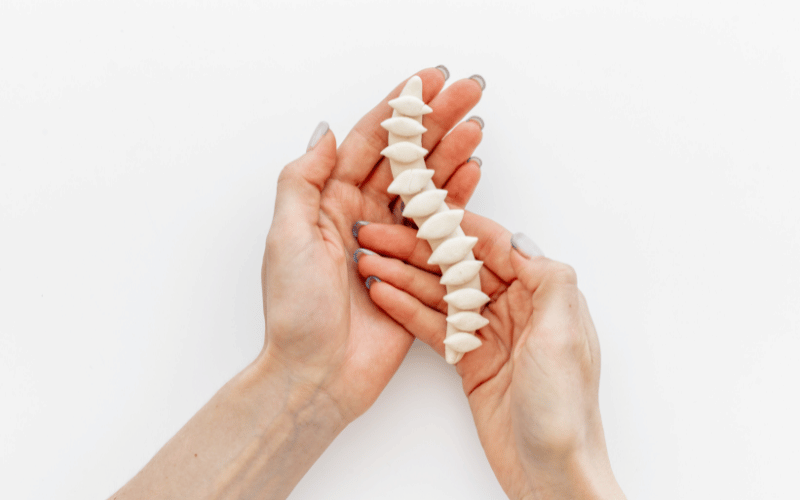Fact 9: Impact on Spinal Health

Our spine is a complex structure, pivotal for movement and housing the all-important spinal cord. And believe it or not, the way we breathe, especially mouth breathing, can influence spinal health.
Chronic mouth breathing can lead to a postural change called forward head posture. With the head jutting forward, there’s an increased strain on the cervical spine. The head, which ideally should be balanced over the spine, when pushed forward, increases the workload for the neck muscles. Over time, this can lead to musculoskeletal pain, reduced range of motion, and potential degenerative changes in the cervical spine.
Furthermore, mouth breathing can alter core dynamics. Proper breathing, especially diaphragmatic breathing, ensures core engagement. This stabilizes the spine, particularly the lumbar region. Mouth breathers often resort to shallow chest breathing, which might not engage the core muscles effectively, reducing spinal stability. (9)